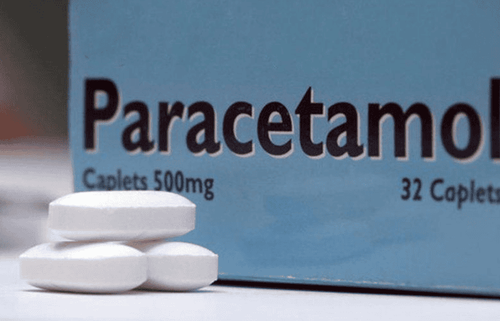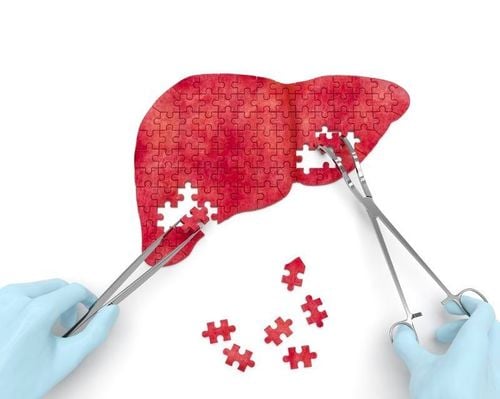This is an automatically translated article.
Treatment of thrombocytopenia when having dengue fever requires prompt transfusion, close monitoring of pulse, blood pressure, urine volume, and red blood cell volume test.
1. Is thrombocytopenia hemorrhagic fever dangerous?
Dengue fever is a disease that occurs quite commonly in many localities across the country, especially in big cities, with diverse clinical manifestations, even with many deaths. Fever usually appears in the first 3-5 days. Hemorrhagic manifestations usually occur a few days after the onset of fever and the presentation is diverse, such as subcutaneous hemorrhage, mucosal hemorrhage,...
Subcutaneous hemorrhage manifests as multiple petechiae (these red dot, does not disappear when pressed by hand - this is also a feature to distinguish it from the case of red spots caused by typhus, when pressed, it will disappear) usually appear mainly on forearms, legs , armpits, chest, waist... Signs of mucosal bleeding include: nosebleeds (nosebleeds), bleeding gums, vomiting blood, bloody stools, in girls at puberty can be Vaginal bleeding (premenstrual period).
If dengue fever is mild, from the 3rd to 7th day of the illness, it is possible to notice that the fever gradually decreases or stops, with obvious improvement. However, some patients develop more serious complications, such as hemorrhagic fever, thrombocytopenia, menorrhagia, gastrointestinal disturbances, and diarrhea. In particular, the most common complication of dengue fever and also the main cause of death is plasma leakage. This is a phenomenon in which plasma is released through the vessel wall, pulling water, leading to a large amount of water loss in the circulatory system, causing cardiovascular collapse, liver and kidney dysfunction, and life-threatening.
For severe bleeding, thrombocytopenia complications are considered very critical conditions. Patients with dengue fever have thrombocytopenia, if not timely infusion, can lead to cerebral hemorrhage, easy to die. Therefore, during the examination, if the platelet test shows a severe decrease, the liver enzymes are elevated, the patient should be hospitalized for treatment immediately.
2. Treatment of thrombocytopenia in dengue fever

Sốc sốt xuất huyết thường dẫn đến suy tuần hoàn cấp, xảy ra vào khoảng ngày thứ 3 - 7 của bệnh
Severe dengue occurs when a patient presents with one of the manifestations of severe plasma leakage, leading to hemorrhagic shock, signs of severe bleeding, organ failure, fluid accumulation in the pleural space and foci. belly.
Dengue shock usually leads to acute circulatory failure, occurring around 3-7 days of illness. Common symptoms are restlessness, restlessness, lethargy, cold, moist skin, cold extremities, rapid pulse, small volume, small amount of urine, stuck blood pressure (a phenomenon when the difference between the maximum and the minimum blood pressure. equal to or less than 20mmHg), hypotension or even no blood pressure measurement.
Dengue shock is again divided into 2 levels to conduct fluid resuscitation, including:
Mild dengue shock with signs such as circulatory failure, rapid, small pulse, stuck blood pressure or drop, accompanied by manifestations such as cold, moist, agitated, struggling, lethargic skin. Severe dengue shock with signs of severe shock, small pulse difficult to determine, blood pressure not measured. It should be noted that in the process of monitoring the patient's progress, the disease may change from mild to severe. Therefore, in the process of examination, it is necessary to classify the clinical signs for correct prognosis and appropriate treatment orientation.
Severe bleeding in addition to symptoms of thrombocytopenia, on clinical examination also showed signs of tissue hypoxia and metabolic acidosis. In addition, the patient may also have severe nosebleeds, requiring gauze to be inserted into the nasal septum to stop bleeding, may be accompanied by menorrhagic fever, bleeding in the muscles and soft tissues, bleeding in the gastrointestinal tract and internal organs. Organisms, often accompanied by severe shock, are at risk of multiple organ failure and severe intravascular coagulation. Severe bleeding is more common in patients taking anti-inflammatory drugs such as aspirin, ibuprofen (NSAIDs) or corticosteroids, and in patients with a history of peptic ulcer disease and chronic hepatitis.
Severe organ failure can be recognized based on signs of acute liver failure, elevated AST, ALT liver enzymes (may be equal to or less than 1,000U/L), acute kidney failure, mental disturbances in cerebral hemorrhagic fever . In addition, patients may develop myocarditis, heart failure, or dysfunction in many other organs.
3. Doctor's advice on how to handle dengue fever

Điều trị khi bị sốt xuất huyết chủ yếu là cải thiện triệu chứng bệnh và hạn chế các biến chứng nguy hiểm
Currently, there is no vaccine for dengue fever and no specific drug for treatment. Treatment for dengue fever is mainly to improve symptoms and limit dangerous complications. The clinical course of the disease is often quite complex, diverse and can change rapidly from mild to severe.
In the first 3-4 days from the onset of dengue fever, patients can be treated as outpatients at home, taking antipyretic drugs when the fever is > 38.5 degrees Celsius, paying attention to rehydration, preventing fever thrombocytopenia bleeding. The diet should prioritize easy-to-digest liquid foods, drink plenty of water (mix with oresol solution, milk, fruit juice or boiled water).
Besides, patients need to be re-examined by appointment and hospitalized for treatment when warning signs of dengue fever appear or according to the doctor's prognosis to prevent and promptly handle possible complications. happen.
Patients treated for hemorrhagic fever with thrombocytopenia were discharged from the hospital when the fever was gone within 2 days, felt awake, blood platelets > 50G/L, pulse index and blood pressure returned to normal.
Vinmec International General Hospital has a team of highly qualified and experienced doctors; modern equipment; Professional service is the address for treating dengue fever that is trusted by many people.
Please dial HOTLINE for more information or register for an appointment HERE. Download MyVinmec app to make appointments faster and to manage your bookings easily.













